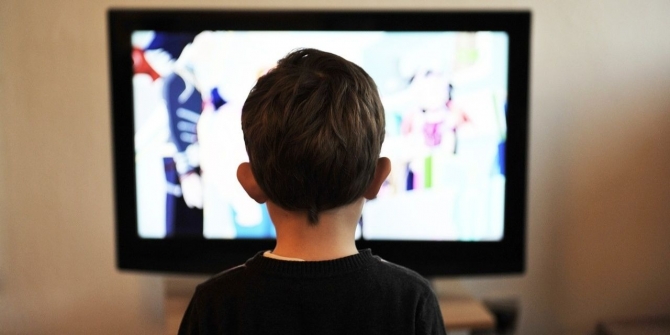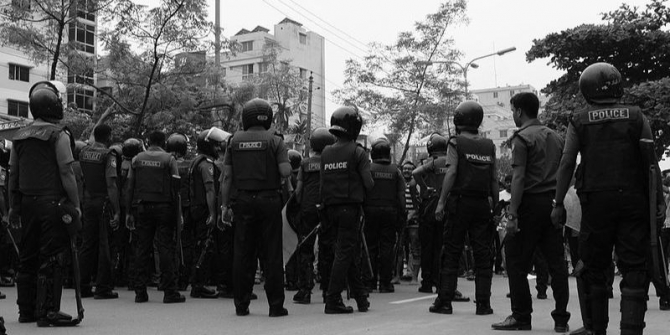After persistent allegations of mass atrocities committed during the long running civil war, a new Sri Lankan Government in 2015 pledged to the international community that it would establish an ambitious reform and transitional justice programme. Four years later, many victims in the country have lost hope. South African transitional justice expert Yasmin Sooka and former BBC Correspondent Frances Harrison of the International Truth and Justice Project explore what went wrong:
 Photo: An aerial shot of Colombo, Sri Lanka | Credit: Flickr, Creative Commons
Photo: An aerial shot of Colombo, Sri Lanka | Credit: Flickr, Creative Commons
Piecemeal Implementation
On paper the vision was grand but fleeting. The promise to set up a hybrid court was quickly abandoned and the victims’ consultation report disowned by the government. A disappearance commission was established but without the necessary legal power and authority to hold anyone accountable – amazing in a country with the world’s second largest disappearance caseload. (Some of the politicians put in charge of the cabinet committee for implementation themselves had denied that disappearances took place). There is still no Truth Commission or reparations body, and crucially no credible witness protection for those who might testify against the security forces. The emblematic cases taken up by the Attorney General mainly focus on Sinhalese victims and ignore the cases of Tamil combatants detained and disappeared after surrender. As such, former US War Crimes Ambassador, Stephen Rapp, recently questioned whether many of the emblematic cases were really “conflict related” cases at all.
Peace versus Justice
In 2015 a pro-West government came to power in Sri Lanka, replacing the decade-long rule of the Rajapaksa family. The coalition was new but the politicians were not. They promised the Sri Lankan people “good governance” and told the international community and Tamils that they would deal with the massive number of grave violations arising out of the civil war that ended in 2009. It wasn’t long before experts argued it would be easier to negotiate a political deal on devolution to Tamils first and postpone criminal accountability. This deferred justice for hundreds of thousands of victims of alleged war crimes and crimes against humanity. Political stability was prioritised over justice, with disastrous consequences for the countless victims and the country.
No Political Will to Tackle System Crimes
A change of politicians at the helm of a country does not automatically herald structural reforms, especially when the violations, and associated financial corruption, have been entrenched for decades. Many in the West saw Sri Lanka’s problems as primarily associated with the Rajapaksa family – without them they hoped for improvement. Previously they had assumed getting rid of the armed group, the Liberation Tigers of Tamil Eelam or LTTE, would also resolve Sri Lanka’s problems. Removing one player from the field doesn’t fix a rotten system. Tackling what the UN called “systems crimes” in a country like Sri Lanka takes political will and leadership, courage and national ownership. The international community has failed to hold the political leadership in Sri Lanka accountable for the commitments made in Geneva in 2015.
A Failed State
The roots of Sri Lanka’s culture of violence and impunity lie in military offensives against youth from the majority Sinhala community in the 1970s and late 80s. The “JVP (People’s Liberation Front) uprising” was a conflict in which 60,000 Sinhala youth are reported to have been killed and the JVP assassinated at least 30 MPs. State-sponsored death squads operated in the south of the island with impunity, many of them with ties to politicians who are still in power, in both main political parties. The Sri Lankan security forces committed atrocities against the majority Sinhala population during this period and then again in the ethnic conflict against Tamils. Many of the older generation police officers involved in brutal torture today against Tamils learned their tactics in the JVP time. Likewise, key military commanders from the Gajaba Regiment who allegedly violated international law in their conduct of the 2009 war, were also allegedly involved in the violations in the south in the late eighties. The failure to hold them accountable then and rewarding them, enabled more bloodshed. The failure to hold them accountable the second time and once again rewarding them, could yet have terrible consequences in the future.
Impunity Under the Current Government
That the current government has been unable to tackle impunity is evidenced by a litany of failures. In 2016 Sri Lanka sent a policeman who had run the most notorious torture site in Colombo as part of their delegation to the Convention Against Torture in Geneva. Despite uproar in the international media, the issue barely registered in Colombo and the policeman just had his contract renewed when he went home. When the all-important witness protection authority was established and contained alleged perpetrators, including one named in a UN report on torture, there was silence. To obtain preferential trading tariffs for the garment sector from the EU, the Government promised to reform its counter terrorism legislation; that hasn’t happened yet.
An alleged war criminal, Jagath Jayasuriya, was one of many rewarded with diplomatic posts abroad. Nobody protested and when the ITJP filed a universal jurisdiction case against him in 2017, he fled. Another alleged war criminal, Jagath Dias, was promoted to Chief of Army Staff in 2015 and there was little outrage. Likewise, when alleged war criminal, Shavendra Silva, was promoted to Adjutant General in 2017, ironically putting him in charge of the human rights division of the Army or when he received international sponsorship. Only when he was brazenly promoted to Chief of Army Staff, was there muted objection but nobody took to the streets of the capital to protest this affront to democracy.
Except for one murder trial underway, the LTTE commanders have also not been held accountable for their actions during the conflict. Most top leaders perished during the war but those who switched sides and became government paramilitaries, were funded and protected by the state. These are individuals alleged to have committed grave violations against all ethnic groups in Sri Lanka over decades but they have been given political posts in the name of “reconciliation”.
Security sector reform was interpreted to mean “right sizing” the army, not weeding out and prosecuting alleged torturers, rapists and war criminals.
A UN investigation highlighted the systematic sexual violence by the security forces against Tamil detainees. To address the issue the Sri Lankan President issued an extraordinarily ineffective edict to the Army telling soldiers not to commit offences but not actually mentioning sexual violence. This was classic box ticking but cited by many as compliance. It wasn’t long before Sri Lanka, of all countries, was honoured by the United Nations as a world leader in the prevention of sexual exploitation and abuse. This despite its failure to hold its UN peacekeepers in Haiti criminally responsible for systematic child sexual abuse over three years.
The Deep State Never Went Away
Not surprisingly, the abductions, torture and sexual violence by the army and police have continued in much the same way as before but not so visibly. The International Truth and Justice Project (ITJP) documented 76 cases of illegal detention and torture from 2015-2017. These are credible cases supported by independent medical reports. Sixty percent of victims have already been accepted as refugees abroad despite the hostile environment.
Nevertheless, the denial is striking. Such abductions caused alarm under the Rajapaksa government; now they are assumed to be the work of organised crime not the State. Criminals don’t usually fingerprint (having access to and using biometric machines) or have access to previous “confessions” made in State detention. The violations, once called systematic and widespread on less evidence, were now viewed as the acts of a few rotten apples, and junior soldiers. Notwithstanding that senior officers were walking into purpose-built torture chambers and the network of actors (often in military uniform) remained extensive. The horrific sexual violence against men was questioned even though inside Sri Lanka these accounts are rarely documented for a number of reasons including stigma and the criminalisation of homosexuality. Nobody cared that violations had been reported in the Tamil media and even to the police in some instances.
Empty Promises regarding Transitional Justice
The denial was and is political and a tragic mistake. Instead of denying the existence of the violations there should have been an awareness that this is what happens if impunity is allowed to flourish. The evidence could have been studied in the context of the last decade of similar violations in the country and concerted efforts made to dismantle the machinery responsible. Instead, Sri Lankan ministers went on a charm offensive abroad, convincing the international community that they were so committed to transitional justice and human rights that they could never tolerate such terrible crimes. The last few months have shown how hollow their commitment was; the champions of the transitional justice process have reversed course very fast as they eye forthcoming elections.
Human Rights
The signs were there all along but ignored. Human rights simply weren’t prioritised sufficiently by donors and diplomats. When the President violated the Constitution in October last year by trying to sack the Prime Minister there was international outrage at the notion that democratic institutions could be challenged. Parliament and the Judiciary moved swiftly to act. Where is that outrage over the failure to hold anyone accountable for the mass atrocities of the war and can the same institutions rise to addressing with the militarisation and securitisation of the state in which an entrenched impunity which will continue to flourish if unchallenged.
This article gives the views of the author, and not the position of the South Asia @ LSE blog, nor of the London School of Economics. Please read our comments policy before posting.
Frances Harrison set up and runs the International Truth and Justice Project (ITJP) based out of London. For two decades she was a BBC Foreign Correspondent based in Pakistan, Bangladesh, Malaysia, Sri Lanka and Iran. She is the author of Still Counting the Dead, a book of survivors’ stories from the final phase of the war in Sri Lanka
Yasmin Sooka is the Executive Director of the Foundation for Human Rights in South Africa. She is regarded as a leading human rights lawyer, activist and an international expert in the field of Transitional Justice, gender and international war crimes, following her work on investigating war crimes in Sri Lanka and her report on post-conflict sexual violence in Sri Lanka as the Executive Director of the ITJP.








Both Francis Harrison and Zooka have displayed amazing partiality when it comes to LTTE. When Zooka ‘s bias towards LTTE is this common one would wonder how suitable she was to head a UNP panel against SL. The report edited by Zooka and even this opinion piece talk about system crimes though no evidences for that is presented. Infact Zooka was notoriously famous for LTTE warned crimes in the report.
A big thank you for your blog article.Thanks Again. Great.